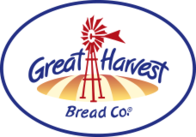Real Food. Real People.
Seeds are not just for planting. They are fantastic sources of nutrients. Here are some of the seeds you should try to eat on a daily basis.


Seeds Have a Ton of Nutrients
We've talked about the importance of whole grains for a balanced diet and about which types of grains you should include in your daily meals, but grains aren't the only source of plant foods that are packed with nutrients. Seeds may be tiny, but they have incredible nutritional value!Poppy Seeds
Poppy seeds are very visually appealing, but they’re more than just a pretty face. A single teaspoon of poppy seeds packs up to four percent on the recommended daily intake of calcium, iron, and phosphorus. An ounce of poppy seeds provides five grams of protein and six grams of fiber. You can sprinkle some poppy seeds on your pancakes, muffins, salad dressing, and vegetable dishes.Sunflower Seeds
You can find sunflower seeds in every store, even in gas stations. For such a seemingly unremarkable seed, it sure has a lot of nutritional value. Sunflower seeds are high in healthy fats, protein, selenium, magnesium, and copper. They are also the richest source of vitamin E, according to the USDA. You can use sunflower seeds in your muffin or bread recipes, include them in your stir-fry, or sprinkle them on your yogurt. You can also make sunflower seed butter. Interested? Check out these Paleo-friendly nut butter recipes by Tasty Yummies.Pumpkin Seeds
Pumpkin seeds are an excellent source of iron, protein, zinc, vitamin B, and vitamin C. They are so much more than a seasonal treat. You can enjoy them year-round. Roast them and snack on them. Sprinkle them on oatmeal, bake them into cakes and muffins, mix them into your smoothies, or use them to make homemade granola and energy bars.Sesame Seeds
You usually find sesame seeds decorating your hamburger bun, but they are more than just decoration. Despite their minuscule size, sesame seeds contain lots of fiber and up to 20% protein. About three tablespoons of sesame seeds provide 11 grams of unsaturated fats and five grams of protein. They are also a great source of calcium, niacin, magnesium, zinc, selenium, and iron. You can sprinkle sesame seeds on your sushi and stir-fry. You can also use sesame seeds to make Tahini (or you can purchase it at the supermarket). Tahini is one of the main ingredients in hummus, but it can also be used for baking. Sunflower, pumpkin, and sesame seeds are part of many bread options you can find at your local Great Harvest bakery. In fact, their Dakota bread has all three seeds! Learn more about their bread and goodies before you head to Great Harvest of Newtonville to get yours. You can also call them at (617) 928-1162 to place your order.Hemp Seeds
Hemp seeds are one of the few plant foods that contain all the essential nine amino acids necessary to build proteins in the body. You can find 10 grams of protein in just two tablespoons! These seeds have a mild, nutty flavor and they’re enriched with fiber, vitamin E, omega-3, and omega-6. Including hempseeds in your diet can help you have amazingly healthy hair. You can use them as a crunchy topping for your salads or yogurt. Why don’t you try using your hemp seeds to make milk as an alternative to dairy milk? Nest & Glow teaches you four different ways to make seed milk.Chia Seeds
Forget about the Chia pet. Chia seeds pack 10 grams of fiber into two tablespoons. These bone-boosting seeds contain calcium, magnesium, and high iron and folate levels. They even have more omega-3s per ounce than salmon does! Use them as a crunchy topping or soak them in water to make a healthy and delicious tapioca-like dessert.Pomegranate Seeds
You might not consider pomegranates a seed, but the edible parts of this fruit are the seeds. These small red jewels are officially called arils. Arils have plenty of fiber and also 40% of your daily vitamin C requirement. Pomegranate seeds make for a delicious and sweet low-calorie snack packed with antioxidants. Eat them by themselves, mixed into your yogurt, toss them in in a salad, or use them to make jelly.Flaxseed
Two tablespoons of flaxseed contain four grams of protein and six grams of fiber. Flaxseed is rich in alpha-linolenic acid as well. Certain studies suggest that flaxseed helps prevent cardiovascular diseases and protects the body from cancer. Adding flaxseed to your diet is easy. You can bake it into muffins, toss it in with your salad, mix it with your smoothie or yogurt, and sprinkle it in your soup. You can even use flaxseed as an egg substitute. All you need to do is mix one tablespoon of ground flaxseed with three tablespoons of warm water.Visit Your Local Great Harvest Bakery for the Healthiest and Tastiest Bread in Newtonville
The healthiest bread will always have whole grains or a variety of seeds. You can find both whole grain bread and seed-filled bread options at Great Harvest of Newtonville. Go ahead and give them a call at (617) 928-1162 to learn all about their delicious bread and treats.
Great Harvest Bread of Newtonville
We'd love to be in touch with you

